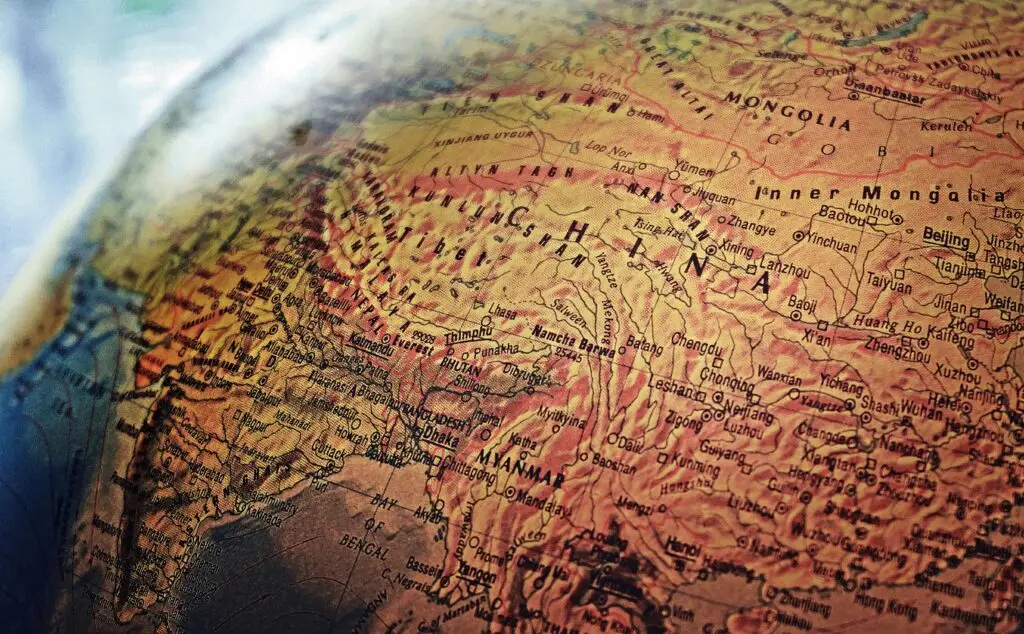a) India-China Relations:
India-China relations are among the most significant and complex bilateral relationships in the world. These two Asian giants, with the world’s largest populations, share a long history, cultural ties, and an extensive border. The relationship between India and China has evolved over time, influenced by various factors:
Historical Context: India and China have a deep-rooted history of cultural and trade exchanges. However, the relationship was strained by the 1962 Sino-Indian War, which resulted in territorial disputes that remain unresolved. These disputes have periodically led to border tensions and military standoffs.
Geopolitical Competition: India and China are major regional and global powers. They both seek to expand their influence and assert themselves on the global stage. This has led to competition and rivalry, particularly in the Indo-Pacific region, where India has sought to counterbalance China’s growing influence.
Economic Engagement: India and China have extensive economic ties, with China being one of India’s largest trading partners. While economic cooperation is significant, trade imbalances and market access issues have been sources of tension.
Diplomacy and Dialogue: Both countries engage in diplomacy and dialogue through mechanisms like the Special Representatives talks on the border issue and participation in regional forums like BRICS and SCO. These diplomatic efforts aim to manage disputes and foster cooperation.
Strategic Relations: The strategic dimension of the relationship is complex. While India seeks to maintain peaceful and stable relations with China, it also seeks to protect its security interests, particularly along the disputed border in areas like Aksai Chin and Arunachal Pradesh.
Border Disputes: India and China have unresolved border disputes in areas such as Aksai Chin and Arunachal Pradesh. These disputes have periodically led to military standoffs and tensions, such as the 2020 Galwan Valley clash. The management and resolution of these territorial disputes remain a significant challenge in the relationship.
Regional Forums and Cooperation: Despite their differences, India and China actively participate in various regional forums and organizations, including the Shanghai Cooperation Organization (SCO) and BRICS. These forums provide platforms for dialogue and cooperation on regional and global issues, even as they navigate their bilateral challenges.
b) India-Nepal Relations:
India-Nepal relations are characterized by shared geography, history, and people-to-people ties. The relationship has been generally close and friendly, but it has experienced occasional challenges:
Historical Ties: India and Nepal share deep-rooted historical, cultural, and religious ties. The open border, known as the India-Nepal Friendship Treaty, promotes the movement of people and trade across the two countries.
Economic Cooperation: India is Nepal’s largest trading partner and provides significant economic assistance and development projects. India has played a crucial role in Nepal’s infrastructure development.
Challenges: The relationship has faced challenges related to Nepal’s internal politics and concerns about sovereignty. Issues like border disputes and Nepal’s evolving relationship with China have occasionally strained ties.
Diplomacy and People-to-People Ties: Diplomatic channels, such as high-level visits and mechanisms like the Joint Commission, facilitate dialogue and cooperation. People-to-people ties remain strong, with cultural exchanges and religious pilgrimage sites being important aspects of the relationship.
Regional Cooperation: India and Nepal are both members of regional groupings like SAARC and BIMSTEC, allowing for broader regional cooperation.
Political Developments in Nepal: Political changes and shifts in Nepal have occasionally affected the India-Nepal relationship. Issues related to Nepal’s internal politics, such as its shift towards a more federal structure, have at times impacted bilateral ties.
Cultural and Religious Connections: The strong cultural and religious connections between India and Nepal, especially through Hinduism and Buddhism, continue to foster goodwill and people-to-people ties. Shared festivals, religious pilgrimages, and cultural traditions play a crucial role in maintaining the close relationship between the two countries.
Future Prospects: India and Nepal continue to work on strengthening their relationship. Resolving outstanding issues and enhancing economic and infrastructure cooperation are likely to be key priorities in the future.
These notes provide a brief overview of the complex dynamics and key aspects of India’s relations with both China and Nepal. These bilateral relationships reflect India’s broader approach to managing regional and global ties.
Refer Egyankosh ebook for more.


